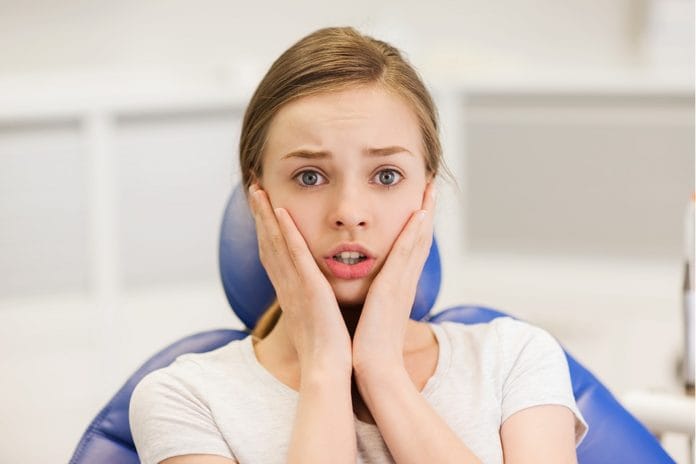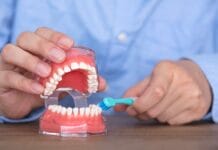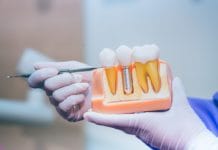Dentistry can be associated with anxiety, phobias, and acute stress. Conversely, these psychological disorders can be associated with dental diseases such as erosion, caries, and periodontal disease.5
Stress, anxiety, and depression may negatively affect the catabolic and anabolic pathways the body uses to react and adjust to reestablish homeostasis. The body’s response to stress is to activate the sympathetic autonomic nervous system and the withdraw of the parasympathetic autonomic nervous system. The body uses these same anabolic pathways for recovery.4 These psychosocial disorders can be the link between psychological and physiological processes that are associated with the onset of disease.3,4 Dental hygienists should include mental health as an integral part of their assessments to determine the best possible treatment outcomes for each individual.
Stress, Depression, and Anxiety Disorders
Stress is defined as a state of mental or emotional strain or tension resulting from adverse or demanding circumstances. Acute stress can elicit an adaptive response in a positive way to help a person to, for example, meet a work deadline. It is the “fight or flight” response. Chronic stress, however, is intermittent, repeated exposure to stressors. This type of stress increases systemic inflammation and decreases immune function over longer periods.2
Stress leads to elevated levels of a stress hormone called cortisol. Cortisol is meant to be helpful in many areas like reducing inflammation or regulating blood pressure, but chronically elevated levels can cause adverse health issues and also lead to anxiety and depression.3
Depression affects 322 million people worldwide. It is a period of at least two weeks where a person experiences a depressed mood and loss of interest in daily activities. This may also include sleep disruption, changes in eating patterns, decreased energy and concentration, or feelings of low self-worth.2 In the United States, patients with depression were found to be 20% to 30% more likely to be fully edentulous than those without depression.5
Sixty percent of those who suffer from depression also have an anxiety disorder. In 2017, anxiety was the most prevalent mental health disorder. Anxiety disorders are defined as a negative state resulting from perceptions of threat, characterized by a perceived inability to predict, control, or obtain desired results in upcoming situations.2 Fifty percent of dental patients have situational anxiety with dental visits, and the perception of dental pain may be increased by depression and anxiety.5
Mental Health Effects on Oral Health
These psychosocial issues are all linked to poor oral hygiene and reduced treatment effectiveness. Psychological disorders are very different but are often bidirectional.2 These disorders may motivate patients to cope in unhealthy ways such as substance abuse, alcohol, tobacco, sedentary lifestyle, poor diet, and poor personal hygiene.7 These comorbidities may exacerbate oral signs of these psychological disorders, including bruxism, temporomandibular joint disorder, gingivitis, periodontitis, and canker sores.
Bruxism is a repetitive, involuntary clenching or grinding of the teeth while asleep. It is considered a marker of chronic stress and is characterized by a sore jaw, facial pain, hearing loss, tooth pain, occlusal wear, and dentinal exposure.4,6 Many patients will note an increase in these symptoms coinciding with more stressful periods of life. This condition may be intermittent and can be managed with a nightly protective appliance or referral to a temporomandibular joint specialist.
We know that the main etiological factor for periodontal disease is plaque accumulation. Even though cortisol is anti-inflammatory, lack of hygiene under stress combined with elevated cortisol can increase inflammation and quicken the progression from gingivitis to periodontal disease.1,4 Those with stress and depression have a reduced immune response that may allow periopathogenic bacteria to proliferate and increase periodontal tissue destruction.2 Without an adequate response from the body, periodontal disease in chronically stressed patients evolves more rapidly to a severe state, and treatment may not be as effective for them.4
Treatment Considerations
Medications should be taken into consideration when assessing the oral health of those with anxiety, depression, or chronic stress. Although selective serotonin reuptake inhibitors (SSRIs) and serotonin-norepinephrine reuptake inhibitors (SNRIs) have been associated with positive decreases in bleeding with probing and clinical attachment loss, xerostomia can be secondary to many anxiolytic and anti-depressant drugs.2,5 Sympathetic stimulation reduces salivary flow and increases caries risk.2
Before beginning any treatment, mental health should be part of overall assessments using a standard perceived stress scale or questionnaire. Offices may also choose to look at biomarkers of salivary cortisol levels to determine if levels may affect treatment outcomes.
Dental hygienists are in a unique position to help patients realize mental health concerns through oral health by recognizing that poor oral health may be secondary to self-neglect.4,5 Dental hygiene interventions include helping patients with oral hygiene by education, management of iatrogenic dry mouth, and early referral. Patients with anxiety, depression, or stress may need a combination of professional therapy and medication in addition to developing coping mechanisms and a strong support system.
Before you leave, check out the Today’s RDH self-study CE courses. All courses are peer-reviewed and non-sponsored to focus solely on high-quality education. Click here now.
Listen to the Today’s RDH Dental Hygiene Podcast Below:
References
- Blanding, M. (2014). Gums Under Attack. Retrieved April 15, 2020, from https://now.tufts.edu/articles/gums-under-attack?utm_source=Tufts+Now+-+Faculty+and+Staff&utm_campaign=1f0c5bed89-Tufts_Now_internal_140618&utm_medium=email&utm_term=0_e2c82ed1e3-1f0c5bed89-207391049
- Geisinger, M. L. (2019). Anxiety, Depression, Stress, and Oral Health: CE Course. Retrieved April 15, 2020, from https://www.dentalcare.com/en-us/professional-education/ce-courses/ce573/toc
- Ghulam, O., Tola, A.W., Al-Saedi, M.A. Oral Hygiene Practice and Its Relation with Stress among the Adult Patient Visiting the National Guard Hospital and Military Hospital in Madinah. Journal of Dentistry and Oral Health. 2018; 5: 1–7. Retrieved from http://www.jscholaronline.org/articles/JDOH/Oral-Hygiene-Practice.pdf
- Gunepin, M., Durache, F., Trousselard, M., Salsou, B., Risso, J.J. Impact of chronic stress on periodontal health. Journal of Oral Medicine and Oral Surgery. 2018; 24(1): 44–50. Retrieved from https://www.jomos.org/articles/mbcb/abs/2018/01/mbcb160058/mbcb160058.html
- Kisely S. No Mental Health without Oral Health. Canadian Journal of Psychiatry. Revue Canadienne de Psychiatrie. 2016; 61(5): 277–282. Retrieved from https://doi.org/10.1177/0706743716632523
- Sutin, A.R., Terracciano, A., Ferrucci, L., Costa, P.T. Jr. Teeth Grinding: Is Emotional Stability related to Bruxism? Journal of research in personality, 2010; 44(3): 402–405. Retrieved from https://doi.org/10.1016/j.jrp.2010.03.006
- Vasiliou, A., Shankardass, K., Nisenbaum, R., & Quinonez, C. Current Stress and Poor Oral Health. BMC Oral Health. 2016; 16(88). doi: 10.1186/s12903-016-0284-y.












